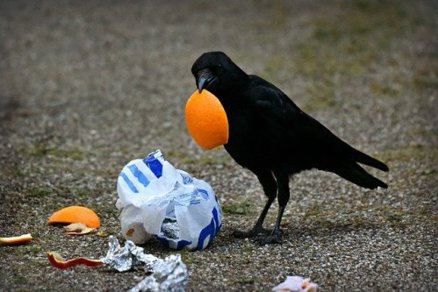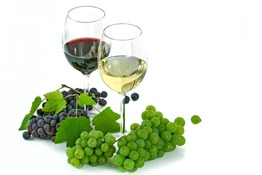Laws of hefsed – damaging shemitah produce

Laws of hefsed, avoiding actions that cause shemitah produce to be destroyed, spoiled, or reduced in volume, and on properly discarding leftovers and peels. Chapter 18 of the Consumer's Guide to Shemitah.
A. Halachic principles
- The Torah states (Vayikra 25:6): "But you may eat whatever the land will produce during its Sabbath." Chazal[1] learn from here that shemitah produce may be eaten, and it is prohibited to spoil or otherwise ruin it. This prohibition is called hefsed (literally "loss").
- The prohibition of hefsed includes:
- Directly destroying the produce.
- Using for a more degraded purpose[2] than usual, such as using human food for animal fodder[3] or to prepare medication.[4]
- Actions that make the produce disgusting to people (even if its form or appearance does not change).[5]
- Eating in a gluttonous fashion.[6]
- Some add: degradation.[7]
- Indirectly causing hefsed is permitted when the food would otherwise spoil on its own.[8]
- There is no minimum quantity of hefsed for shemitah produce; it is prohibited to destroy even the slightest amount.[9]
B. Peels, shells, and pits
- Peels that are worthy of human consumption (such as apple, cucumber, and carrot peels) or animal consumption (such as peanut shells) have shemitah sanctity, even if one doesn't want to eat them and there is no animal around that can actually eat the peels,[10] and it is forbidden to throw them away in the garbage bin.[11] Rather, one can set them aside until they rot on their own. However, hard shells that are inedible even to animals (almond and nut shells, etc.) may be discarded.[12]
- Fruit seeds or pits that have small parts of the fruit still attached (date, olive, peach, and plumb pits) or that can be eaten on their own (such as watermelon or pumpkin seeds) have shemitah sanctity[13] and may not be discarded.
- Pits or seeds without any edible parts (such as apricot pits) or are bitter and not eaten on their own (citrus seeds, grape pips, etc.) do not have shemitah [14]
- Orange peels have shemitah sanctity, since they are often used as animal fodder and to prepare jam and candies,[15] so they should be treated as such. However, other types of citrus peels (such as tangerines), which are not conventionally used, do not have shemitah [16]
- It is permissible to peel fruits and vegetables even though their peels are edible (for more on peeling, see Chapter 16 B).
C. Miscellaneous laws
- It is permissible to feed a baby or a small child shemitah fruit or vegetables, even if some of the food becomes spoiled when they eat it.[17]
- One should not overfill the havdalah goblet with shemitah wine or use some of the wine to put out the havdalah candle, since this ruins the wine.[18]
- It is permissible to use shemitah wine for the four cups of wine on Seder night,[19] but drops of wine should not be spilled out when mentioning the plagues.[20]
- Fragrant branches and flowers may not be discarded as long as they still have a pleasant aroma.[21]
[1] Pesachim 52b; Rambam 5:17; Shabbat Ha'aretz 5:3 §5. The prohibition against hefsed is also linked with the prohibition against altering food from its original form, as explained at length in Chapter 16.
[2] Shenot Eliyahu 8:2.
[3] See Chapter 19 §F.1.
[4] See Chapter 21 §C.
[5] Mishpat Kohen §85 based on Tosafot, Ketubot 30b, s.v. lo; Torat Ha'aretz 8:30 writes that as long as one does not completely spoil the food, the prohibition is only rabbinic; Shabbat Ha'aretz 5:3, n. 50. Torat Ha'aretz (8:46) writes that it is also prohibited to mix a bitter ingredient with shemitah produce that will render it inedible or edible only in extenuating circumstances.
[6] Torat Ha'aretz, ibid.
[7] This is Rabbi Eliahu's ruling. In his opinion, it is prohibited to act in a degrading manner towards shemitah produce even after it is no longer edible and it no longer has shemitah sanctity, even if it is permitted to spoil or destroy it.
[8] Rabbi Frank, Har Tzvi, Zera'im II §54, quoting Ridbaz 5:1 (at the end). Chazon Ish (§14:10, s.v. velamadnu) writes that it is possible to be lenient only when this prevents spoiling, and instead dries the produce. See also Shabbat Ha'aretz 5:3 §6.
[9] Responsa of Rabbi Chaim HaKohen Rappaport, YD §59, qtd. in Kerem Tziyon ch. 14, n. 2; Beit Ridbaz §5:5 in his gloss on Pe'at Hashulchan; Torat Ha'aretz 8:36. Some disagree, arguing that this prohibition relates only to the quantity of a kezayit or more: Rabbi Frank, Kerem Tziyon 14, Ga'on Tzvi §1; Minchat Chinuch §329. See also Shabbat Ha'aretz 5:1, nn. 3–4.
[10] Rambam 5:21, 7:15 and Terumot 11:10. See Shabbat Ha'aretz 5:21 §§1–2.
[11] See Shabbat Ha'aretz 5:3 §5.
[12] Chazon Ish §13:11, based on Rambam, ibid. See Chapter 19 §D.1, n. 11, citing the Chazon Ish's stance of being lenient for such peels, even if they can be used as animal fodder—provided that most people do not use them for this purpose. Rabbi Eliahu rules that it is prohibited to throw away these peels in the garbage, since this is degrading to shemitah produce.
[13] Chazon Ish, ibid., and Sefer Hashemitah p. 31, §1, based on Rambam, Terumot 11:11. See also Kessef Mishneh 7:15, who implies that even hard pits have shemitah sanctity, since they are secondary (tafel) to the fruit, which is sacred (and would thus be sacred even after the fruit's consumption); see also Sefer Hashemitah, ibid., n. 5 (who is lenient for olive pits); Mishnat Yosef I §38:4 provides practical guidelines for various types of produce.
Shevet Halevy VII §224 permits playing with apricot seeds (for the children's game gogo'im/ajo'im, the Israeli version of "pitch a penny"), even though the inner part of the seed can theoretically be eaten (because it is generally not eaten and is difficult to extract). He provides the same rationale for permitting olive pits mentioned in Sefer Hashemitah; Shabbat Ha'aretz 5:21 nn. 18–22, 7:15 §1.
For watermelon seeds, which are edible but only a minority of the population actually eats them, further investigation is necessary to determine whether they have shemitah sanctity. It is possible that this depends on the intentions of the one sowing the watermelons to begin with. Rabbi Eliahu rules that they have shemitah sanctity, regardless of intent.
Rabbi Elyashiv (Mishpatei Eretz 23, nn. 10–11) rules that if one removes from the seed all the parts of fruit that one intends to eat from it, it is permissible to discard the rest.
[14] Chazon Ish, Ma'aserot §1:31, s.v. vegari'nin; Mishnat Yosef I §38:4. See ibid., for the discussion on shemitah sanctity for pear and apple seeds that are often eaten together with the fruit.
[15] There is extensive discussion among the Acharonim about whether orange peels have shemitah sanctity: see Rabbi Kook, Mishpat Kohen §84, Da'at Kohen §240 who is stringent; Rabbi Auerbach, qtd. in Mishnat Yosef I §30, s.v. ube'ikar shemitlabet bekach; Chazon Ish §14:10, s.v. ובמ"ב (ube-mishnah berurah) and ibid., Ma'aserot §1:30, who writes that today orange peels do not have shemitah sanctity, since today most people do not feed them to animals after eating the fruit.
In practice: since today orange peels are used on an industrial level, lechatechilah, they should be handled as having shemitah sanctity.
[16] This is Rabbi Eliahu's ruling, who adds that it is best to be stringent.
[17] Beit Ridbaz §5:1 (at the end), who permits this because this causes hefsed indirectly; see also Torat Hashemitah §13:62; Kerem Tziyon 14:1. Rav Zilber (Hilchot Shevi'it §5, Kise David §8) permits this, even though he maintains that causing hefsed is prohibited. This is because this is the way that babies eat; he adds, though, that one should gather up the bits of food left over. If the baby will spoil the majority of the fruit, however, it is possible that one should be stringent. Rabbi Chaim Shaul Greinman, in Chiddushim Ubi'urim §7, maintains that one should be stringent since he holds that even indirectly causing hefsed is prohibited. See Mishpatei Eretz, ch. 21, n. 16. Rabbi Eliahu rules that one may be lenient, since this is the way babies eat.
[18] Rabbi Kook, Shabbat Ha'aretz, Kuntres Acharon §22. See also Mishpatei Eretz 21:5 and Brit Olam §5:3, who argue that there is no problem with the fact that women do not drink the havdalah wine (due to less people being able to drink the wine if used for this purpose), since the one saying havdalah can always pour the leftover wine back into the bottle.
[19] Yerushalmi, Shekalim 3:2 on shemitah wine used for the four cups, cited by Rabbi Kook, ibid.; he adds that there is no issue here of אין עושין מצוות חבילות חבילות (lit. "we should not bundle together mitzvot," meaning that we don't discharge with a more than one mitzvah obligation in a single act). It follows that it is perfectly fine to use the shemitah wine for other mitzvah purposes, including kiddush and havdalah.
Chazon Ish §15:7 questions this, as the bi'ur time for wine is until Pesach. He resolves this difficulty by offering that this refers to the Pesach of the shemitah year, not the eighth year (alternatively, it is also possible to render the wine ownerless at bi'ur time and take possession afterwards—MB); see also Har Tzvi, Zera'im II §53, who expounds on the matter.
[20] Rabbi Kook, ibid., since afterwards one cannot drink this wine, thus it constitutes causing hefsed.
[21] On the shemitah sanctity of fragrant flowers and branches, see Chapter 5 §D. Rabbi Eliahu rules that even after the flowers wilt, one should not throw them away since this degrades shemitah produce.




